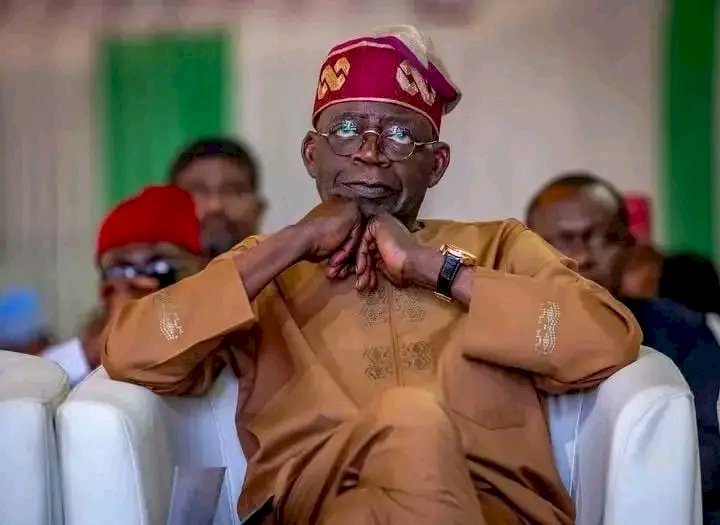FG applies for fresh $400m World Bank Loan to Fund 15m Households

The Federal Government has applied for a fresh loan of $400m for the conditional cash transfer to 15 million households as one of the measures to cushion the effects of the removal of petrol subsidy.
The $400m World Bank loan will bring to $1.2bn the amount that the Federal Government is borrowing from the World Bank for the cash transfer as it had earlier secured a loan of $800m for the same purpose.
President Bola Tinubu announced the conditional cash transfer to 15 million households in a nationwide address to commemorate the country’s independence on October 1 as part of measures to cushion the effects of the subsidy removal on petrol, which has led to an astronomic rise in the cost of living.
He also announced that the Federal Government would commence the payment of N25,000 monthly to 15 million households for three months from October to December 2023.
The immediate past administration of President Muhammadu Buhari had secured $800m from the International Bank for Reconstruction and Development (World Bank) to provide post-petroleum subsidy palliatives for over 50 million Nigerians. The loan was meant to be accessed by the succeeding administration.
In his October 1 broadcast, President Tinubu also announced the approval of N25,000 provisional allowance for junior federal workers over the next six months.
He said the approval followed negotiations with labour unions and other stakeholders in the business community to increase the federal minimum wage without triggering undue inflation.
“For the next six months, the average low-grade worker shall receive an additional N25,000 per month,” the President stated.
However, following protests about the exclusion of other categories of workers and pensioners and the threat by the organised labour to embark on a nationwide strike, the government announced N35,000 provisional wage award for all treasury-paid Federal Government workers for six months following further consultations with the leadership of the Nigeria Labour Congress and the Trade Union Congress.
The World Bank is Nigeria’s biggest multilateral creditor, with the country owing about $14.51bn as of June 30, 2023.
Further breakdown showed that Nigeria had $14.03bn IDA debt and $485.75m IBRD debt by the second quarter of 2023.
The Debt Management Office recently said the country’s total public debt hit N87.38tn at the end of the second quarter of this year.
The figure represents an increase of 75.29 per cent or N37.53tn compared to N49.85tn recorded at the end of March 2023.
Further breakdown shows that Nigeria has a total domestic debt of N54.13tn and a total external debt of N33.25tn.
While the domestic debt makes up 61.95 per cent of the total debt, the external makes up 38.05 per cent.
It was also observed that there was a significant increase in both domestic and external debt within three months.
The domestic debt rose by 79.18 per cent from N30.21tn while the external debt rose by 69.28 per cent from N19.64tn in Q1 2023.
In its 2022 Debt Sustainability Analysis Report, the DMO warned that the Federal Government’s projected revenue of N10tn for 2023 could not support fresh borrowings.
According to the office, the projected government’s debt service-to-revenue ratio of 73.5 per cent is high and a threat to debt sustainability.
It noted that the government’s current revenue profile could not support higher levels of borrowing.
In a report titled, ‘Report of the Annual National Market Access Country Debt Sustainability Analysis,’ the debt office said, “The projected FGN debt service-to-revenue ratio at 73.5 per cent for 2023 is high and a threat to debt sustainability.
“It means that the revenue profile cannot support higher levels of borrowing. Attaining a sustainable FGN debt service-to-revenue ratio would require an increase of FGN revenue from N10.49tn projected in the 2023 budget to about N15.5tn.”
The DMO stated that the government must pay attention to revenue generation by implementing far-reaching revenue mobilisation initiatives and reforms, including the Strategic Revenue Growth Initiatives and all its pillars with a view to raising the country’s tax revenue to GDP ratio from about seven per cent to that of its peer.
The Federal Government would be unable to borrow a lot as it nears its self-imposed debt limit of 40 per cent, the DMO said.
To reduce borrowing and budget deficit, it stated that the government should encourage the private sector to fund some of the capital projects that were being financed from borrowing through the public-private partnership schemes.
According to the report, the Federal Government could reduce borrowing through privatization or asset sales.






















